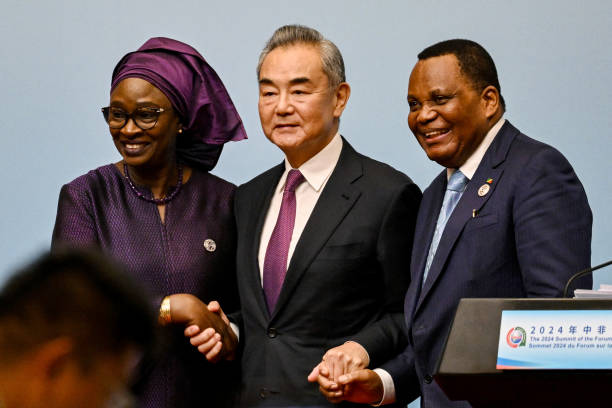The 1960s were a pivotal decade for both Africa and China, marked by an extraordinary surge of solidarity and mutual support. As the African continent surged towards independence, China stood alongside its African counterparts, offering not only moral but also material assistance. This partnership was rooted in shared experiences of colonial oppression and a common struggle against imperialism. It was an era when the ideals of liberation, anti-imperialism, and sovereignty were not just political slogans but driving forces of global solidarity.
At the heart of this cooperation was the belief that the liberation of one part of the world was intrinsically tied to the freedom of others. After the Bandung Conference of 1955, where Asian and African countries pledged to stand united against colonialism and racism, China emerged as a key ally to many African liberation movements. The decade of the 1960s, often called the “Year of Africa” due to the rapid wave of African nations gaining independence, saw China offering crucial support to movements across the continent. This support came in many forms, from military assistance to educational exchanges, and from direct financial aid to moral backing in international forums.
One of the most significant instances of Sino-African solidarity occurred in the newly independent Congo (1960), where Chinese diplomats and military advisors supported the fight against Belgian imperialism, which had not fully withdrawn its control despite Congo’s formal independence. China’s role in the Congo’s struggle against imperialism illustrated how deeply embedded China’s political ideology of supporting liberation movements was
Cornell University Library Journals
.
In addition to direct military aid, China also sought to bolster African nations economically and diplomatically. Chinese leader Mao Zedong’s government encouraged the development of economic ties with African countries. The Chinese leadership believed that Africa’s fight for freedom was not just a local struggle but part of a broader global fight against Western domination and the vestiges of colonialism
Cornell University Library Journals
.
China’s strategy wasn’t just about ideology—it also served to position China as a powerful leader in the global anti-imperialist movement. As the Cold War raged on, African nations’ quest for self-determination became a key battleground for influence between the United States, the Soviet Union, and China. While the Soviet Union often provided military support to African liberation movements, China’s approach was distinctive in its emphasis on moral support, economic collaboration, and direct intervention in training local freedom fighters
.
A key moment came with the establishment of the Organization of African Unity (OAU) in 1963. This marked the culmination of a decade of pan-African cooperation, and China was quick to engage with the new African diplomatic front. By the mid-1960s, China had cultivated a reputation as an ally of African nations struggling for independence from colonial powers and was eager to support new governments as they sought to assert their sovereignty
.
As the 1960s drew to a close, the bonds between Africa and China, forged in the fires of liberation struggles, were stronger than ever. The impact of China’s support in this transformative decade continues to shape the diplomatic and economic relations between the two regions today, even as China has evolved into one of Africa’s most influential partners on the global stage.
In examining the 1960s, it’s clear that the era was not just about independence for African nations; it was about global solidarity. China’s involvement was not merely transactional, but was rooted in a shared struggle for freedom and dignity—an unbroken thread that continues to define the relationship between Africa and China in the 21st century.




